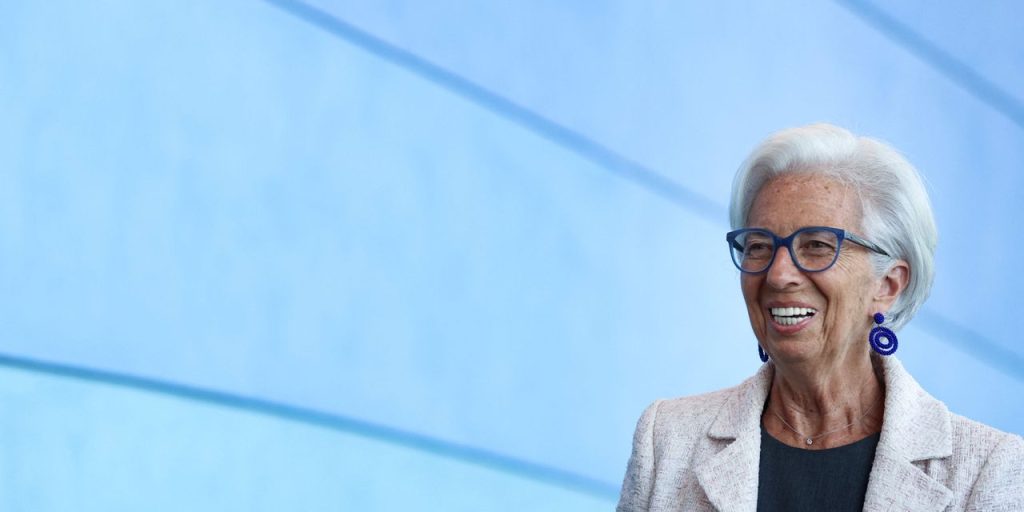The European Central Bank on Thursday lifted interest rates by a quarter of a percentage point, as expected. And ECB President Christine Lagarde made clear policy makers were in no mood to “pause” rate increases a day after the Federal Reserve left its policy on hold.
An upward revision to ECB staff projections on the core inflation outlook got the attention of investors, pushing up European bond yields and lifting the euro.
“Inflation has been coming down but is projected to remain too high for too long. The Governing Council is determined to ensure that inflation returns to its 2% medium-term target in a timely manner,” the ECB said in a statement.
The ECB hike lifted the deposit rate to 3.5%.
The move comes a day after the Federal Reserve left its policy interest rate unchanged, pausing after an aggressive series of increases, but signaled that half a percentage point of further monetary tightening remained in the pipeline.
See: 5 key takeaways from Fed Chair Jerome Powell’s press conference Wednesday
The ECB said staff revised up expectations for inflation excluding energy and food, citing “past upward surprises and the implications of the robust labour market for the speed of disinflation.”
They now see core eurozone inflation reaching 5.1% in 2023, before declining to 3.0% in 2024 and 2.3% in 2025. In March, ECB staff had projected core inflation at 4.6% in 2023, falling to 2.5% in 2024 and 2.2% in 2025.
Lagarde, in a news conference, said the ECB was “very likely” to raise rates again in July and that policy makers “are not thinking about pausing.” On the inflation fight, “the journey to get there is not over and we have ground to cover,” she said.
Lagarde said policy makers had a “quite harmonious” discussion and that the rate decision was a “very broad consensus,” an indication that it wasn’t unanimous.
Lagarde said a strengthening labor market was a bright spot for the eurozone economy, but highlighted worries over rising wage pressures. Unit labor costs have been a key driver of inflation, she said, and are likely to remain a factor, particularly from the services sector heading into summer.
Lagarde, however, said the eurozone isn’t suffering from a “wage-price spiral.” The ECB wants to avoid a situation in which labor and employers get into a “tit for tat” effort to get full compensation for inflation increases, which can lead to such a spiral.
The overall message from the ECB’s guidance and forecasts “is that policy makers’ work is not done,” said Jack Allen-Reynolds, deputy chief eurozone economist at Capital Economics, in a note.
German bund yields rose, but have come off early highs. The euro added to gains as Lagarde spoke, rising 0.5% versus the U.S. dollar
EURUSD,
to $1.089 in recent trade.
Read the full article here
